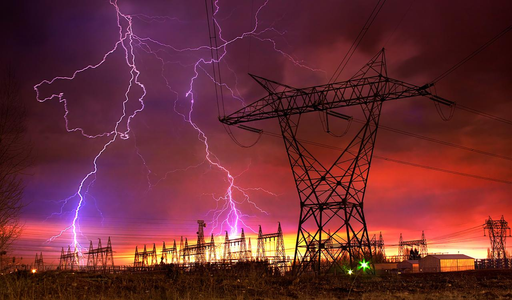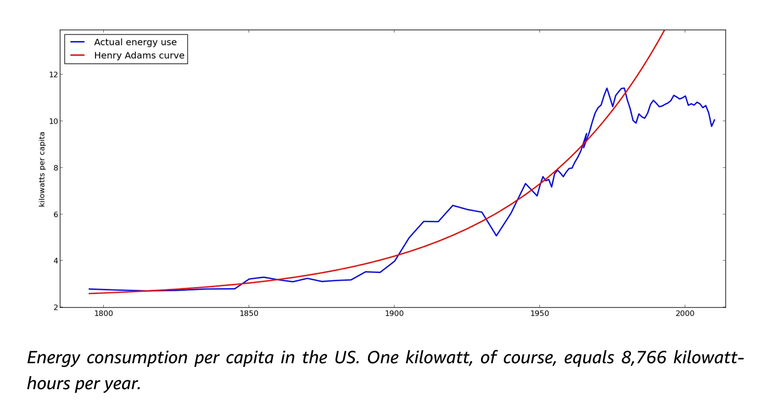Bedrohung der Stromversorgung / Threat to the power supply
Das Liberale Institut aus Zürich hat ein Paper veröffentlicht, geschrieben von Silvio Borner (war emeritierter Professor für Wirtschaft und Politik an der Universität Basel) und Bernd Schips (bis zu seiner Emeritierung ordentlicher Professor der ETH Zürich und zuvor auch Professor an den Universitäten Bochum und St. Gallen): libinst _briefing
Zusammenfassung
- Eine funktionierende Stromversorgung ist für die Volkswirtschaft elementar. Stromangebot und -nachfrage müssen sich dabei möglichst genau entsprechen. In der Schweiz funktionierte die Stromversorgung bislang auch bei Nachfragespitzen praktisch einwandfrei – hauptsächlich dank der Unterstützung von Speicherseen und Kernkraftwerken.
- Mit der Energiestrategie 2050 (ES 2050) beabsichtigt der Bundesrat einen grundlegenden Umbau des bisherigen Erfolgsmodells. Er strebt eine vermehrte Deckung des künftigen Strombedarfs mit erneuerbaren Energieträgern an, obwohl diese punkto Zuverlässigkeit nicht mit den bisherigen Energieträgern mithalten können.
- Auch rechnet der Bundesrat mit einem Rückgang im Energiebedarf pro Kopf. Insbesondere die zur Erhaltung der Wettbewerbsfähigkeit unvermeidliche Automatisierung und Digitalisierung der Produktionsprozesse in der Industrie, im Gewerbe und im Dienstleistungssektor wird jedoch nicht zu einer geringeren, sondern eher zu einer steigenden Stromnachfrage führen. Unterdrückt der Staat diese Nachfrage, ist mit Abwanderung von Arbeitsplätzen und Kapital zu rechnen.
- Die ES 2050 wird zu einer Beeinträchtigung der Versorgungssicherheit führen, solange es keine technische und wirtschaftliche Lösung für den saisonalen Ausgleich zwischen Stromproduktion und Stromnachfrage gibt. Wenn stabile Stromproduzenten (Wasser- und Kernkraftwerke) vom Netz genommen werden, nimmt das Risiko von Stromunterbrüchen zu. Die Abhängigkeit von (nicht garantierten) Stromimporten wird dann sukzessive zunehmen und die Strompreise werden unausweichlich steigen, selbst wenn es gelingen sollte, neue Speichermöglichkeiten und -techniken zu finden und «Backup»- Kraftwerke (z.B. Gaskraftwerke) zu bauen. Zumindest sollten deshalb alle inländischen KKW unterdessen weiter Strom produzieren können, solange dies aufgrund des laufenden Unterhalts auch ökonomisch vertretbar ist.
Disclaimer: Der Text ist nicht von mir, sondern vom Liberalen Institut. Sobald das Liberale Institut (oder der Autor des Textes) einen Account bei Hive hat, sende ich die Rewards für diesen Post (grosszügig aufgerundet) zu dessen Account.
The Liberal Institute from Zurich has published a new paper, written by Silvio Borner (professor emeritus of economics and politics at the University of Basel) and Bernd Schips (until his retirement full professor at the ETH Zurich and before that also professor at the Universities of Bochum and St. Gallen): libinst _briefing
Summary
- A functioning power supply is elementary for the national economy. Electricity supply and demand must correspond as closely as possible. In Switzerland, the power supply has functioned practically flawlessly up to now, even during demand peaks - mainly thanks to the support of storage lakes and nuclear power plants.
- With the Energy Strategy 2050 (ES 2050), the Federal Council intends to fundamentally change this successful model. It aims to cover more of the future electricity demand with renewable energy sources, although these cannot compete with the current energy sources in terms of reliability.
- The Federal Council also anticipates a decline in per capita energy demand. In particular, however, the automation and digitalization of production processes in industry, commerce and the service sector, which is unavoidable in order to maintain competitiveness, will not lead to a lower demand for electricity, but rather to an increase. If the state suppresses this demand, an exodus of jobs and capital can be expected.
- The ES 2050 will lead to an impairment of the security of supply as long as there is no technical and economic solution for the seasonal balance between electricity production and electricity demand. When stable electricity producers (hydro and nuclear) are taken off the grid, the risk of electricity interruptions increases. Dependence on (non-guaranteed) electricity imports will then successively increase and electricity prices will inevitably rise, even if new storage options and technologies can be found and "backup" power plants (e.g. gas-fired power plants) can be built. At the very least, therefore, all domestic Nuclear Power Plants should be able to continue producing electricity in the meantime, as long as this is economically justifiable due to ongoing maintenance.

Disclaimer: This text was not written by me, but is from the Liberales Institut (a classical liberal think tank from Zurich). As soon as Liberales Institut (or the author of the text) has an account with Hive, I will send the rewards for this post (generously rounded up) to its account.
El Instituto Liberal de Zúrich ha publicado un nuevo documento, escrito por Silvio Borner (fue profesor emérito de economía y política en la Universidad de Basilea) y Bernd Schips (profesor titular de la ETH de Zúrich hasta su jubilación y anteriormente también profesor de las universidades de Bochum y St. Gallen): libinst _briefing
Resumen
- Un suministro de electricidad que funcione es elemental para la economía nacional. La oferta y la demanda de electricidad deben corresponder lo más posible. En Suiza, el suministro de electricidad ha funcionado prácticamente sin problemas hasta ahora, incluso durante los picos de demanda, principalmente gracias al apoyo de los lagos de almacenamiento y las centrales nucleares.
- Con la Estrategia Energética 2050 (ES 2050), el Consejo Federal pretende cambiar radicalmente este exitoso modelo. Su objetivo es cubrir una mayor parte de la futura demanda de electricidad con fuentes de energía renovables, aunque no puedan competir con las actuales en términos de fiabilidad.
- El Consejo Federal también prevé un descenso de la demanda energética per cápita. Sin embargo, la automatización y la digitalización de los procesos de producción en la industria, el comercio y el sector de los servicios, que son inevitables para mantener la competitividad, no conducirán a una menor demanda de electricidad, sino a un aumento. Si el Estado suprime esta demanda, es de esperar un éxodo de puestos de trabajo y de capital.
- El ES 2050 provocará un deterioro de la seguridad del suministro mientras no haya una solución técnica y económica para el equilibrio estacional entre la producción y la demanda de electricidad. Si los productores estables de electricidad (centrales hidroeléctricas y nucleares) son retirados de la red, aumenta el riesgo de interrupciones de la electricidad. La dependencia de las importaciones de electricidad (no garantizadas) aumentará entonces gradualmente y los precios de la electricidad subirán inevitablemente, incluso si se encuentran nuevas opciones y tecnologías de almacenamiento y se construyen centrales eléctricas de "reserva" (por ejemplo, centrales de gas). Por lo tanto, como mínimo, todas las centrales nucleares nacionales deberían poder seguir produciendo electricidad mientras tanto, siempre y cuando esto también sea justificable económicamente debido al mantenimiento en curso.

Descargo de responsabilidad: Este texto no ha sido escrito por mí, sino que procede del Liberales Institut (un grupo de reflexión liberal clásico de Zúrich). En cuanto el Liberales Institut (o el autor del texto) tenga una cuenta en Hive, enviaré las recompensas de este post (generosamente redondeadas) a su cuenta.
Se agradecen mucho las correcciones lingüísticas, ya que todavía estoy trabajando con DeepL (https://www.deepl.com/translator) y me gustaría mejorar mi español. Gracias.


Rehived :-)
Merci bien! 😀
Es ist fast tröstlich zu lesen, dass neben dem "besten Deutschland, das wir jemals hatten", auch die Schweiz an diesem Experiment teilnimmt. Mir hilft mittlerweile nur der innere Stoiker, um meinen Weg in die Zukunft ohne Auflehnung und Verzweiflung zu gehen. Lass' sie machen, denke ich mir, der Irrtum ist der beste Lehrmeister. Über die Sinnhaftigkeit von Langfristprognosen habe ich gerade hier philosophiert: https://hive.blog/deutsch/@herz-ass/prognosen
In sofern passen unsere beiden Artikel an einer Stelle gut zusammen.
Das Wasserkraft abgeschafft werden soll ist wahrlich famos.
!BEER
View or trade
BEER.Hey @zuerich, here is a little bit of
BEERfrom @indextrader24 for you. Enjoy it!Do you want to win SOME BEER together with your friends and draw the
BEERKING.In the case of my country the electrical system has worsened more and more over the years, sometimes we can spend up to 3 days without electricity and no matter where you live, because even in the capital it happens. The homes in my country if you don't have an external source of energy, you have no life.
Yes, energy is a vital necessity. I hope countries around the world will ensure access to energy, without ideological blindness.
Der größte Fehler, den man machen kann, ist zu glauben, dass an den entscheidenden Stellen in Politik, Wissenschaft und Wirtschaft die besten Leute sitzen. Es ist leider mittlerweile beinahe genau umgekehrt.
Der zweitgrößte Fehler, den man machen kann, ist zu glauben, dass diese Idioten nicht in der Lage sind, erhebliches Unheil anzurichten, weil die Macht der Umstände und der Realität sie davon abhalten werden.
Bürokratisch-sozialistisch oder -faschistische Strukturen ziehen sowieso immer und überall in erster Vollidioten an, unabhängig von deren akademischen Titeln oder sonstigem Blendwerk. Besonders die Posten bei der EU haben für Versager jeder Couleur eine erhebliche Anziehungskraft, weil der dort gezahlte Sold weit über dem liegt, was die entsprechenden Damen und Herren gemäß ihren Fähigkeiten und Kenntnissen in der freien Wirtschaft verdienen würden, während ihre Verantwortung gegen null geht und sie gleichzeitig einen Vollkasko-Status genießen.
Da ist die Katastrophe vorprogrammiert - auf allen Ebenen.
If politicians start thinking the world doesn't work in supply and demand, the end is near.
pragmatic decisions mean being ahead of the curve. Talking forever and making stupid laws + feeding politician friends with tax money will be the same effect but 180° + behind the curve.
Do we want more energy? Build it. Do we want energy storage? Build it.
IMO all western states are overcommitted to old technologies/ infrastructure. From telecommunications, cargo, and transportations up to the energy sector.
Using it to the end is cheaper than renewing it. Renew means pay it twice. If at the same time technologies transferred "for free" means again be behind the curve.
Now to think "we want it, that's why it works" never works.
It's like printing money or increasing taxes to pay the bills. It doesn't work too. That doesn't increase productivity at all and makes every citizen poorer than before.
IMO nowadays political doesn't understand simple economic mechanics. That will make the Bill at the end horrendous high.
Btw, investments in the energy sector would be IMO really bullish, if it not would be overregulated around the globe.
Yes, the energy sector needs a lot of innovation. I think we should get back to the Adams Curve:

https://www.lesswrong.com/posts/Ck5cgNS2Eozc8mBeJ/a-review-of-where-is-my-flying-car-by-j-storrs-hall
Let's hope BTC (mining) incentivizes energy entrepreneurs to innovate in this crucial industry. Politicians won't rescue us...